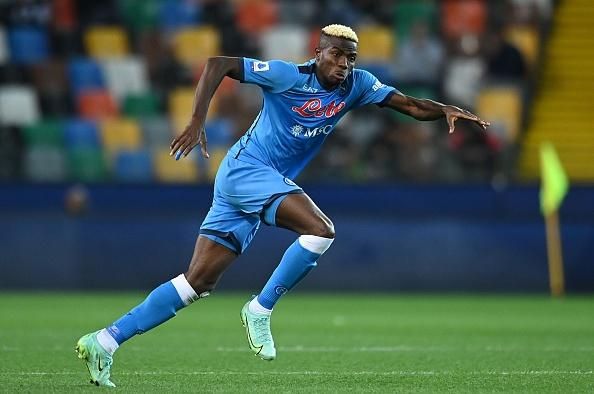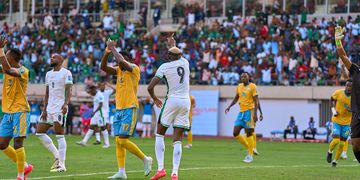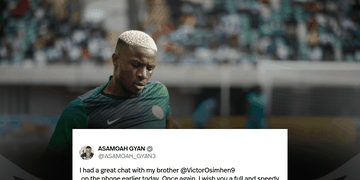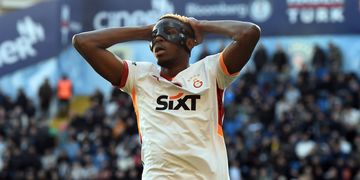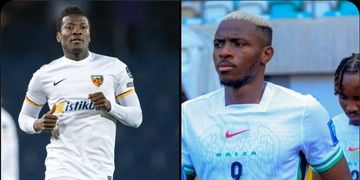In recent times, Napoli's Nigerian striker,Victor Osimhen, has found himself at the center of a growing debate among the football community.
The performance of the Nigerian international on the pitch, coupled with a few off-field incidents, have raised questions about his future at the Serie A club.
The saga surrounding Osimhen's relationship with coach Rudi Garcia and his overall impact on Napoli has ignited discussions among football fans.
Many have wondered if Osimhen's struggles can be attributed solely to him, his coach, or a combination of both.
It would be recalled that the former LOSC Lille star have not found the back of the net since his hatrick against São Tomé and Principe, going drought against Genoa, Braga, and now Bologna.
Against the Red and Blues, Osimhen was handed a clear chance to break his three game deadlock, but the Nigerian star squandered the chance by smashing the penalty kick far wide.
Isolation on the field
One common observation is that Osimhen has often appeared isolated on the field. Defenders have figured out ways to contain him, making it challenging for him to find the back of the net consistently. It's evident that Osimhen has faced a growing need to adapt his game to counter these defensive strategies.
Osimhen's isolation up front is a concern, and he does need more support from his teammates. However, it's essential to acknowledge that football is a team sport.
His role as the primary striker often means he's a focal point for opposing defenses. In these moments, he has an opportunity to create space for his teammates, but it's a two-way street.
Dilemma with coach Garcia
Rudi Garcia also plays a significant role in this narrative. Some argue that his tactical choices and substitutions have not always maximized Osimhen's potential.
In certain matches, it has been clear that Osimhen needed a partner upfront to help draw attention from defenders, but the coach's decisions didn't align with this need even with the presence of Khvicha Kvaratskhelia.
It's a valid point that coaches must adapt and make tactical changes when their star players are struggling. In Osimhen's case, it's crucial for Garcia to find ways to exploit the striker's strengths and foster a dynamic attack.
Osimhen’s conduct on the pitch
Beyond the tactical aspect, some incidents involving Osimhen have raised eyebrows. His actions—which he has reportedly apologized in the dressing room—towards Luciano Spalletti’s replacement have led to concerns about his professionalism and attitude.
The incident involving the penalty miss was a prime example. While it's natural for players to feel frustration, it's equally important to maintain composure and lead by example.
https://twitter.com/fanstribehq/status/1706252093835665847?s=46&t=b9FUBUNstw3lkK85djbEwA
No player should force a coach's hand through behavior that disrupts team harmony. Osimhen's perceived demands may not always align with the coach's vision, and he needs to adjust to this.
The way forward
In the midst of this saga, one question pops up, What should Napoli and Osimhen do next? It's essential for both parties to find a common ground. Osimhen's potential is undeniable, and Napoli's investment in him reflects their belief in his abilities.
Moving forward, Osimhen must continue to refine his game, adapt to defensive strategies, and maintain professionalism on and off the pitch. Coach Garcia, too, should explore tactical variations that can bring out the best in Osimhen and Napoli as a whole.


